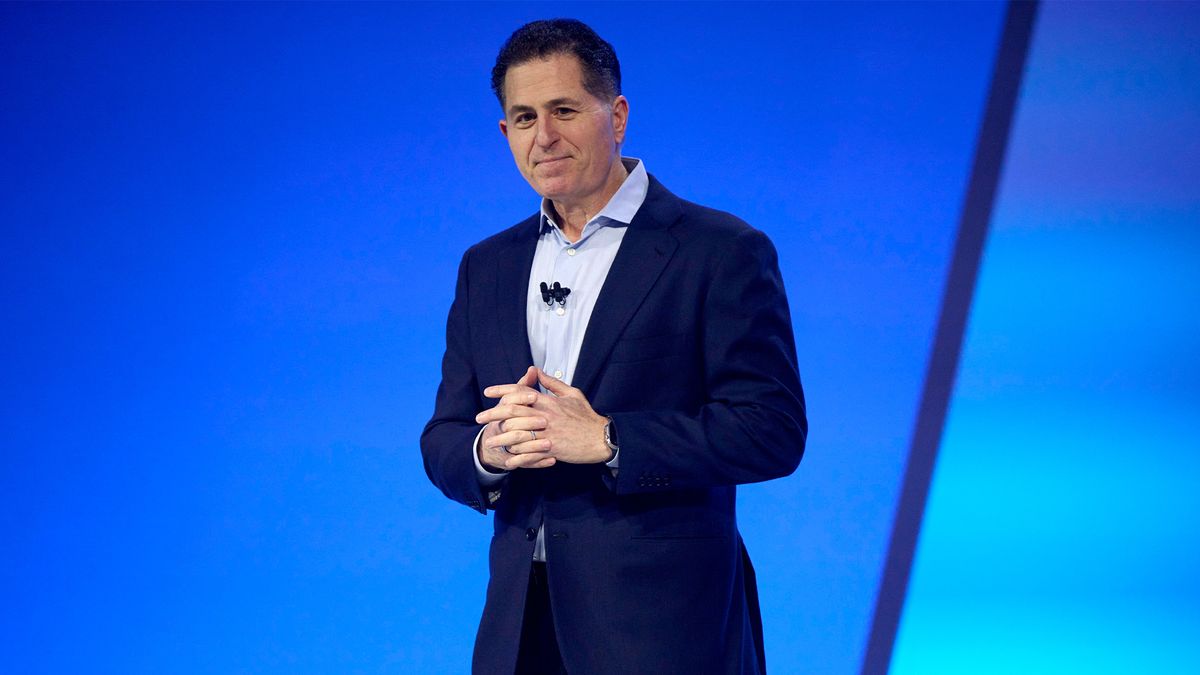Dell Technologies’ recent earnings call shows its AI focus is beginning to bear fruit despite a rocky start in the generative AI race, with the tech giant reporting record growth for server and networking products.
Revenue surged 9% to $25 billion in the last quarter, the company revealed. The positive quarterly results follow massive job cuts at the hardware maker.
At the beginning of last month, Dell slashed 10% of jobs, saying the reorganization was designed to focus the company on AI — a similar AI-centered motivation has fueled job cuts at Cisco, Intuit, and Dropbox.
Revenue was up, but so was income, with a 3% increase to $2bn for operating income and net income up 7% to $1.37bn.
Such restructuring makes sense given the AI-focused bump in its results. For Dell’s second quarter, its Infrastructure Solutions Group (ISG) saw revenue up 38%, with sales of servers and networking hitting a record $7.7bn — up by 80%.
“Our momentum in ISG is a significant tailwind, with record ISG revenue of $11.6 billion, up 38% year over year,” said Yvonne McGill, chief financial officer of Dell Technologies, in a statement.
Meanwhile, Dell’s Client Solutions Group — which includes PCs — slipped 4% year on year, falling to $12.4 billion. The company predicted growth for commercial PCs in the second half of the year, boosted by the drive to use AI tools and the looming Windows 10 end-of-life deadline next year.
“The coming PC refresh cycle and the longer-term impact of AI will create tailwinds for the PC market,” said McGill in a conference call.
Server sales paint a rosy picture for Dell Technologies
Dell said in its results statement that demand for servers was seeing growth across AI and traditional technologies, as well as improved margins.
“AI momentum” accelerated significantly across Q2, according to Jeff Clarke, vice chairman and chief operating officer, with the company recording a sizable increase in the volume of enterprise customers buying AI solutions.
“AI-optimized server demand was $3.2 billion, up 23% sequentially, and $5.8 billion year to date,” Clarke added. “Backlog was $3.8 billion, and our pipeline has grown to several multiples of our backlog.”
In a conference call, Clarke noted that increasing server orders were largely driven by tier-2 cloud service providers. The company’s positive results were also supported by demand for Dell’s air and liquid-cooled AI servers.
Dell made much of its Dell PowerEdge XE9680L, its new rack server which uses direct liquid cooling (DLC), at Dell Technologies World 2024. The rack contains 72 of Nvidia’s Blackwell chips and was launched as a supporting pillar for Dell’s ‘AI Factory’ offering.
Similarly, Dell also saw an increase in the number of enterprises purchasing AI solutions, with appetite for dedicated sovereign AI services also spiking.
“Enterprise remains a significant opportunity for us as many are still in the early stages of AI adoption,” he said. “We are also excited about the emerging sovereign AI opportunity, which plays to our strengths given our position with governments around the world.”
McGill said Dell is also applying AI across its own business, beyond selling hardware, and beginning to see benefits.
“We’re using it to improve customer and team member experiences in sales, software development, services, content management and our supply chain,” she said in the conference call. “And in turn, we’re using our experiences to help our customers realize the benefits of AI for themselves.”
The results — and argument in favor of the benefits of AI for enterprises — come amid concerns about the rising costs of AI for the industry. Beyond the aforementioned job cuts, Microsoft warned that its heavy spending on investment on AI may mean a return on investment takes as long as 15 years.
More broadly, Gartner said data center spending is expected to increase 24% and software spend up 12.6% as companies shell out to jump on the AI bandwagon.
Source link
